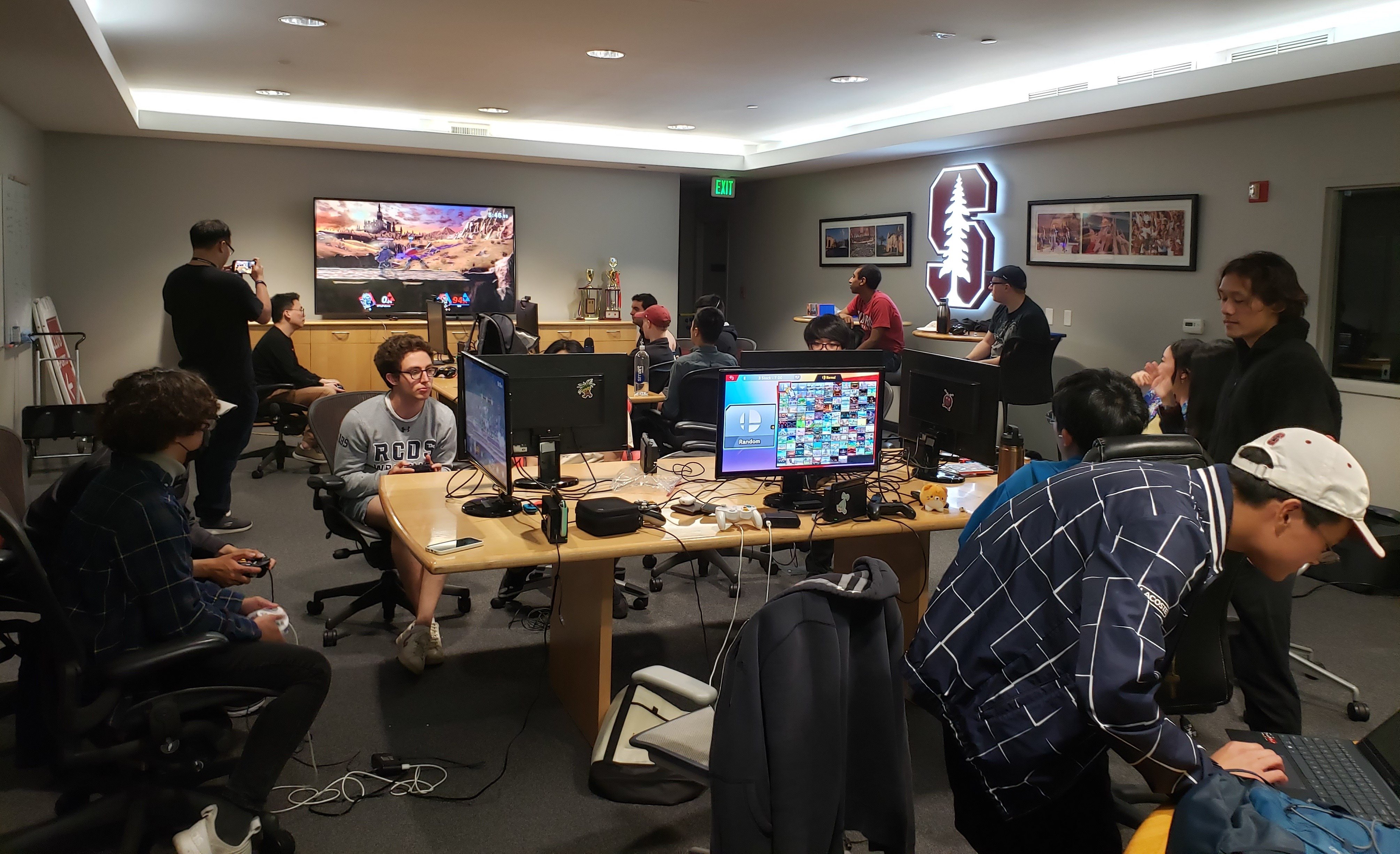Saturdays are for smash — Super Smash Bros. Ultimate, to be exact. Stationed at the intramural sports office in Taube Tennis Center, a community of undergraduate and graduate students gather to play the platform fighting game every weekend.
“Being Stanford students, we’re often so busy with classes, assignments, papers and exams. Whenever I need a pick-up for a change of pace, I know I can always rely on my friends at Stanford Smash,” said Stanford Smash Bros. Officer Chris Basco ’24.
Stanford Smash Bros. is a student group focused on playing Super Smash Bros. Ultimate, a fighting game released by Nintendo in 2018. According to Basco, the club also plays previous installments of the popular video game series including Super Smash Bros. Melee, released on the Nintendo GameCube in 2001.
The group meets every Saturday night to play Super Smash Bros. at Taube Tennis Center. According to the President and Tournament Organizer of Stanford Smash Bros. Leo Baek ’25, these weekly events aren’t always competitive; the sessions alternate between tournaments and casual nights the group calls “friendlies.”
In addition to these on-campus sessions, the group also competes with other schools. “Some of the best memories I’ve had with the club are going to Berkeley to fight their club,” wrote Baek.
According to Baek, Stanford Smash Bros. plans to compete with Cal again later this academic year.
The video game student group originated in 2021 as a small community of frosh looking to play the Nintendo Switch title despite COVID-19 restrictions. “The pandemic had basically totaled the Smash Bros. community, which makes sense considering it’s a game that works a lot better in a physical environment,” wrote Baek.
Super Smash Bros. officer Michael Cho ’25 wrote that some of his favorite memories took place during the early days of the community.
“We used to run our events in an EVGR common space, dragging monitors and supplies up to the lounges and back down to the cars at 3:00 a.m. together. Not the best setup, but it reminds me of how far we’ve come,” Cho wrote.
According to Baek, the Smash community “found [its] footing” as part of the Stanford Video Game Association. The group’s small Discord server of seven individuals has since grown into a community of more than 200 members today.
For Michael Hong, second-year Ph.D. student in Management Science and Engineering, video games like Super Smash Bros. have been “an important vehicle of self-improvement.” According to Hong, playing Super Smash Bros. with fellow Stanford students not only instills a sense of community, but also provides an avenue for “analytical thinking, training reactive skills and learning from past experiences.”
Despite the competitive aspects of the fighting game, Hong said that practices are free-flowing and informal and that the group “caters to all demographics of Super Smash Bros. enthusiasts.”
“Since I joined Stanford Smash, I’ve only seen it grow. It’s absolutely amazing to experience the dedication, warmth and fun that this community has to offer,” Basco said.
Kyla Figueroa contributed reporting.
